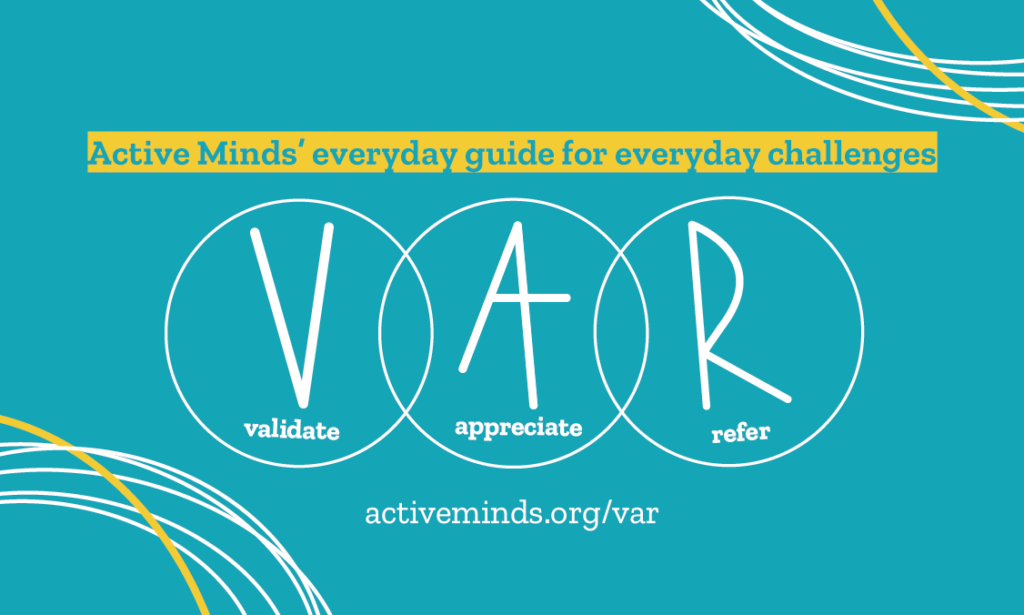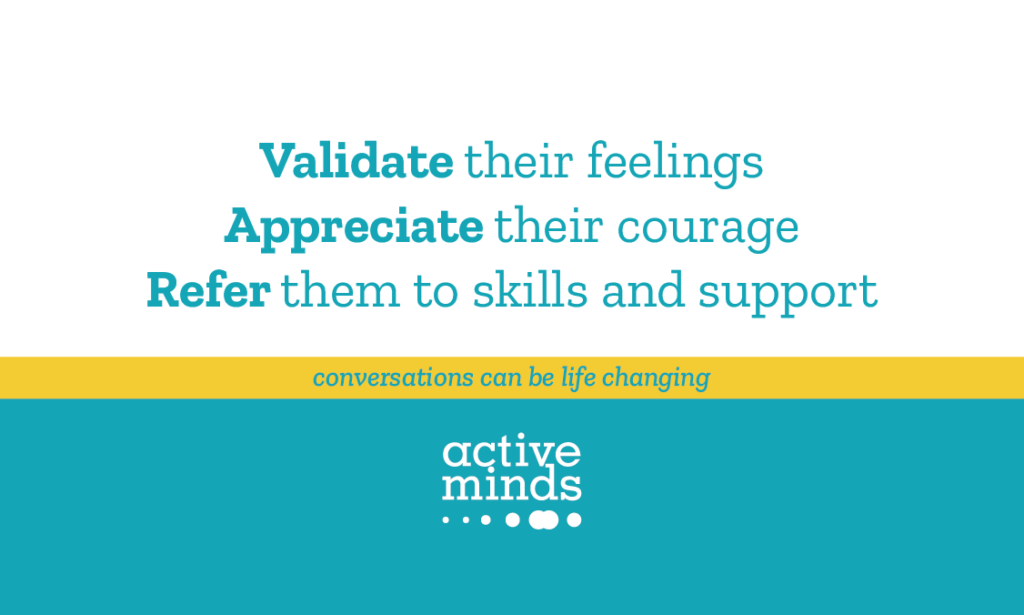When you’re struggling with your mental health, it can be incredibly difficult to reach out. We may fear being met with stigma and misunderstanding, or we may fear no one will be there at all. It’s important to let people know “I’m here for you,” because even if they aren’t ready to talk at that moment, you’ve given them a safe place to go when they need help. If someone knows you’ll be there when they’re having a rough go of it, it can be easier for them to push past feelings of being a burden. These conversations can be life-changing and life-saving.
However, it can also be difficult being on the other end. It’s easy to say “I’m here for you;” it’s a lot harder to show up when the time comes someone needs you.
I think it’s time we change how we interact with each other. We often ask “How are you?” without really expecting an honest response. I believe saying “I’m here for you” sometimes, unfortunately, is an empty statement. I don’t believe people in our lives don’t mean it when they say it – I think many of us are ill-equipped to have those conversations when someone is struggling. Our care and concern for someone seems to prevent us from being able to support them when they need it most. We worry about saying or doing the wrong thing, so we end up saying and doing nothing.
That can change. There are three easy-to-follow steps that can help you respond to someone who confides in you in a supportive way. The first is to validate their feelings. Second, appreciate their courage. Lastly, refer them to appropriate skills and support. Think of V-A-R as a roadmap for when you aren’t quite sure what to say. My hope is to build a culture with a sincerity behind the statement “I’m here for you,” so we can intervene early and prevent crises from occurring.
Next time you send that message that says “here for you,” you’ll be ready when they reach out.
To learn more, see the 3 V-A-R Steps page. You can also keep these steps handy by downloading the V-A-R Wallet Card.






